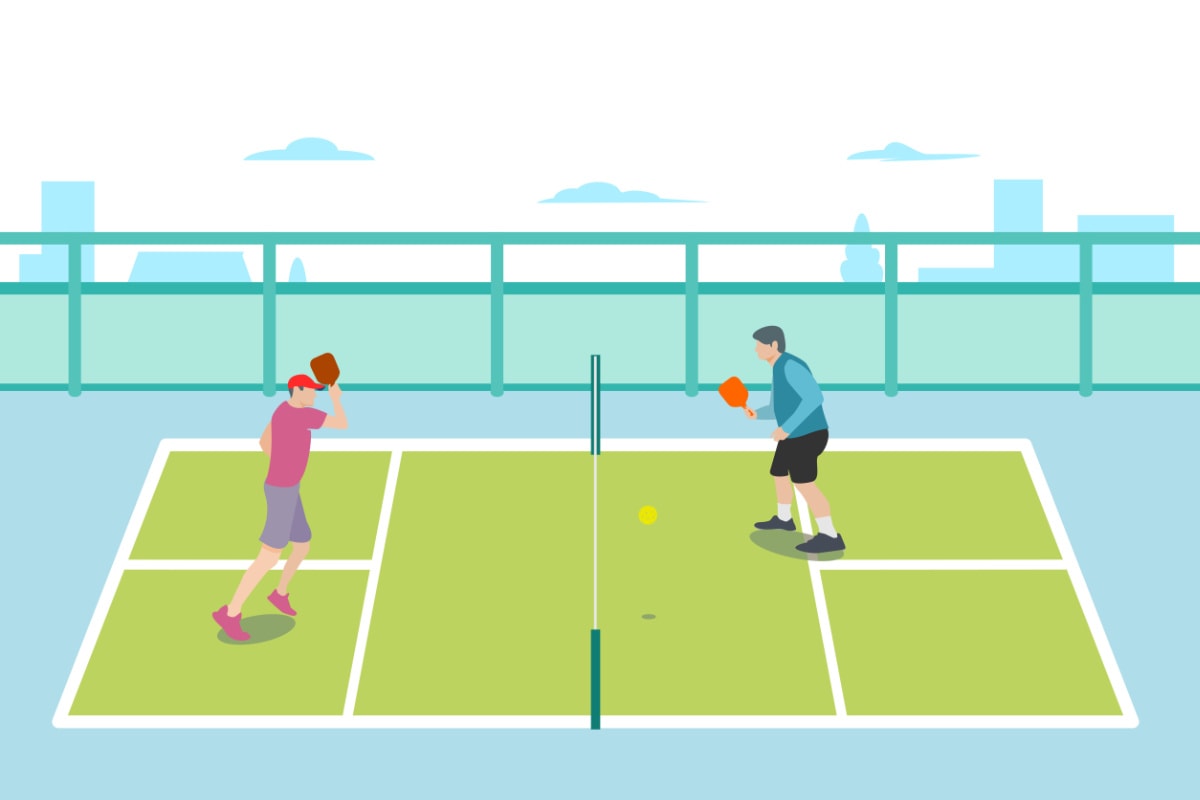Hailed as “America’s fastest-growing sport,” the paddle sport of pickleball has surged in popularity in recent years.[1] The game has enjoyed not only an increase in television coverage and celebrity sponsorships, but also an increased demand for places to play. In fact, although many facilities across the country have actually converted their tennis courts into pickleball courts, pickleball courts remain crowded and highly coveted.[2] Community associations are not immune from the pickleball fever. A common topic at community association meetings has been the installation of pickleball courts or conversion of tennis courts into pickleball courts. This article sets forth just a few factors your association should consider before choosing to install, or not install, pickleball courts in your community.
It is likely that the installation of a pickleball court would take place on “common area” of the association.
While “common area” is often assigned a distinct, specific definition in an association’s governing documents, homeowners usually enjoy some interests in their association’s common area. Therefore, before altering an association’s common area to install a pickleball court, it is important for the association’s board to review their governing documents to see what procedure may be necessary for such an alteration. Depending on the provisions of the governing documents, a board may very well have the authority to unilaterally decide to alter the common area, or it may even require the unanimous approval of homeowners; it will depend heavily on the association’s specific governing documents. Moreover, the installation of pickleball courts, or even the conversion of tennis courts into pickleball courts, would inevitably require an expenditure of association funds. Therefore, the association’s governing documents would again come into play to determine whether a vote and/or what type of vote would be required to approve such an action.
On a practical note, it cannot be stressed enough that pickleball is not a quiet sport.
Pickleball paddles are commonly made of fiberglass or wood material, which are used to hit a plastic ball which resembles a wiffle ball. On a legal note, it is important to understand that the noise generated by pickleball courts has led to a number of legal disputes for community associations.[3] The association might consider regulations regarding the pickleball court such as time restrictions or quiet hours. While any case against an association would be fact-specific and dependent on a multitude of factors, suffice to say that if your association does decide to install a pickleball court, it would be prudent to do so in a remote location that would not disrupt the quiet enjoyment of other homeowners. Even if the association were to prevail in defending a lawsuit concerning the noise or related disturbance of the pickleball court, the lawsuit would foreseeably be a significant expense for the association.
An association should also confer with its insurer to see how pickleball may impact its insurance coverage and obligations.
While pickleball is a fun sport which can be enjoyed by a wide range of people, it is still a physical activity which unavoidably carries the risk of injury. Of course, if the association does install a pickleball court, it should take great care to ensure that the area is maintained in a safe condition.
While pickleball has understandably become an overwhelmingly popular sport and social activity, that popularity may or may not be so prevalent among those who live near the noise and secondary effects of the pickleball court. Accordingly, an association interested in pickleball should give careful consideration to not only the procedural requirements set forth in its governing documents, but also the facts and circumstances that may factor into the action being challenged by homeowners in disagreement with the inclusion of pickleball in the community.
Of course, this is in no way intended to be an exhaustive discussion of the legal implications of pickleball for an association. Our attorneys at McCabe, Trotter & Beverly, P.C. are experienced and well-equipped to answer questions you may have regarding pickleball or any other recreational activities your association would like to facilitate. Please contact us at (803) – 724 – 5000 for further information.
Written by Christian Saville
McCabe, Trotter & Beverly, P.C. blogs and other content are for educational and informational purposes only. This is not legal advice and does not create an attorney/client relationship between McCabe, Trotter & Beverly, P.C. and readers. Readers should consult an attorney to understand how this information relates to their personal situation and circumstances. You should not use McCabe, Trotter & Beverly, P.C. blogs or content as a substitute for legal advice from a licensed attorney.
[1] https://www.yahoo.com/lifestyle/pickleball-sport-addictive-divisive-tennis-171700283.html
[2] https://www.costar.com/article/233516311/pickleballs-popularity-has-resorts-scrambling-to-convert-tennis-courts-seize-revenue-opportunities
[3] https://www.kpbs.org/news/quality-of-life/2023/09/05/homeowners-are-increasingly-taking-legal-action-over-pickleball-noise

